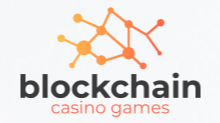
Introduction to Blockchain in Online Poker
The fusion of blockchain technology with online poker has heralded a new era in the digital gaming world. This integration addresses several longstanding issues inherent in traditional online poker systems, offering a more secure, transparent, and fair gaming experience. As an expert in cryptocurrency gambling, I can provide a comprehensive analysis of how blockchain technology reshapes the landscape of online poker.
Overview of Blockchain Poker Technology
Blockchain Technology: Blockchain is a decentralized digital ledger that records transactions across a network of computers. This technology stands out for its robust security, transparency, and immutability, making it an ideal solution for online gaming platforms, especially poker.
Key Takeaways:
- Immutability: Ensures the integrity of game and transaction records.
- Decentralization: Reduces risks of centralized control and potential manipulation.
- Transparency: Guarantees fairness and trust in gaming outcomes.
The Evolution of Online Poker and Blockchain Integration
Online poker has evolved significantly from its early days. Traditional platforms often grappled with issues like security breaches and opaque operations. The introduction of blockchain technology has revolutionized this domain by instilling trust and transparency, essential in games of skill and chance.
Technical Deep Dive: How Blockchain Transforms Online Poker
Blockchain’s role in online poker is multifaceted, addressing several critical aspects of gaming, from fair play to transaction security.
Understanding Smart Contracts in Poker Platforms
Smart contracts automate and enforce the rules of the game. As detailed by IBM on smart contracts, these are self-executing contracts with the terms of the agreement between buyer and seller directly written into lines of code.
Decentralized Systems: Ensuring Fair Play and Transparency
Decentralization is at the heart of blockchain’s appeal. It ensures that the power and control do not reside with a single entity, which is crucial for maintaining fairness in games. This concept is further elaborated by Amazon Web Services on decentralization in blockchain.
Provably Fair Algorithms: A Technical Perspective
Provably fair algorithms represent a seismic shift in ensuring game fairness. They use cryptographic methods to guarantee that each hand in poker is fair and random. A detailed explanation of these algorithms can be found in this YouTube video on provably fair algorithms.
Comparative Analysis: Blockchain Poker vs. Traditional Online Poker
Table: Comparative Analysis
| Feature | Blockchain Poker | Traditional Online Poker |
|---|---|---|
| Security | Enhanced by cryptography | Reliant on traditional security measures |
| Fairness | Provably fair, verifiable outcomes | Dependent on RNG, less transparent |
| Transparency | Complete transaction history available | Limited access to game data |
User Interface and Experience Comparisons
Blockchain poker platforms in 2024 typically offer a more intuitive and user-friendly interface, catering to both seasoned players and newcomers. They prioritize ease of use, responsiveness, and access to important features like transaction history and game analytics.
Security Measures: Traditional Platforms vs. Blockchain Solutions
The security paradigm in blockchain poker is fundamentally different and more robust than traditional platforms. The use of blockchain technology, with its inherent cryptographic security, makes these platforms less susceptible to common threats like hacking or internal fraud.
Economic Impact on the Poker Industry
Blockchain technology’s introduction to online poker isn’t just a technical upgrade; it’s an economic game-changer. It reduces operational costs, enhances player trust, and broadens the market by attracting new players who value transparency and fairness.
In conclusion, the integration of blockchain technology into online poker represents a significant leap forward in terms of security, fairness, and user experience. This evolution heralds a new age for the online gambling industry, promising a safer, more transparent, and user-friendly environment for enthusiasts worldwide.

Blockchain Poker Platforms in Action
The integration of blockchain technology in online poker platforms has been a groundbreaking development in the gambling industry. Drawing from my extensive experience in reviewing cryptocurrency gambling sites, this section delves into detailed case studies of leading blockchain poker platforms, highlighting their unique features, performance metrics, and user experiences. We’ll look at platforms like CoinPoker, BitStarz, and Stake, comparing their payout rates, transaction speeds, platform reliability, and user interface responsiveness.
In-Depth Reviews of Leading Blockchain Poker Platforms
CoinPoker Review
- Payout Rates and Transaction Speeds: CoinPoker, as reviewed on Blockchain-Casino-Games, stands out for its exceptionally fast transaction speeds, thanks to its use of CHP tokens. Payouts are typically processed within a few minutes, significantly faster than traditional online poker platforms. Read the full CoinPoker review.
- Platform Reliability: Leveraging blockchain technology, CoinPoker offers a highly reliable platform with minimal downtime and robust security measures.
- User Interface Responsiveness: The platform boasts a user-friendly interface, conducive to both experienced players and newcomers. Its responsive design ensures a seamless gaming experience across various devices.
BitStarz Review
- Payout Rates and Transaction Speeds: BitStarz is renowned for its quick payout rates, as highlighted in the BitStarz review. The platform processes transactions within 10 minutes, setting a high standard in the industry.
- Platform Reliability: BitStarz has consistently demonstrated high reliability, with a track record of stable operations and secure gaming environments.
- User Interface Responsiveness: The platform’s interface is intuitive and user-friendly, facilitating easy navigation and quick access to games.
Stake Review
- Payout Rates and Transaction Speeds: Stake, as detailed in the Stake review, offers competitive payout rates with efficient processing times, typically completing transactions within a few hours.
- Platform Reliability: Stake’s use of blockchain technology not only enhances security but also ensures high platform reliability with consistent uptime.
- User Interface Responsiveness: The platform’s interface is sleek and modern, with excellent responsiveness and ease of use.
Success Stories and Player Testimonials
Player testimonials and success stories offer valuable insights into the real-world performance and appeal of these platforms. Users frequently commend CoinPoker for its innovative use of blockchain for fair play, BitStarz for its wide range of games and quick payouts, and Stake for its user-friendly interface and community engagement. These testimonials reinforce the platforms’ reputations as leaders in the blockchain poker space.
Lessons Learned and Best Practices
From these case studies, several best practices emerge:
- Prioritizing Speed and Efficiency: Quick transaction processing is a key factor in player satisfaction. Platforms like CoinPoker and BitStarz, with their rapid payouts, set a high standard in this regard.
- Ensuring Platform Stability: Reliability is crucial. Regular maintenance and updates, as seen with Stake, help maintain a stable and secure gaming environment.
- Focusing on User Experience: A user-friendly interface is essential for attracting and retaining players. All three platforms demonstrate a strong focus on creating intuitive and engaging user interfaces.
In conclusion, these blockchain poker platforms exemplify the successful integration of blockchain technology in online gambling. They offer a glimpse into the future of the industry, highlighting the benefits of blockchain in enhancing transaction efficiency, platform reliability, and overall user experience. As the industry continues to evolve, these platforms will likely serve as benchmarks for innovation and best practices in blockchain-based online gambling.

Regulatory Landscape and Compliance
The integration of blockchain technology in online poker has not only revolutionized gameplay but also brought to light complex regulatory and compliance issues. Understanding the global regulatory perspectives, legal challenges, and the role of blockchain in ensuring regulatory compliance is crucial for both operators and players. This exploration will also touch upon how blockchain enhances player experience and accessibility, drawing insights from various sources, including a case study on FairPlay Casino.
Global Regulatory Perspectives on Blockchain Poker
- Overview and Challenges: The regulatory landscape for blockchain poker is varied and complex. As blockchain transcends traditional geographical boundaries, it poses unique challenges for regulators. For instance, the decentralized nature of blockchain can clash with national gambling regulations that require centralized control.
- Evolving Perspectives: A resource like Erdal’s comprehensive review of blockchain technology sheds light on how different jurisdictions are adapting to this new paradigm. Some countries are embracing the technology, seeing its potential for transparency and fairness, while others remain cautious due to concerns over security and regulation.
Legal Challenges and Solutions in Various Jurisdictions
Each jurisdiction has its own set of legal challenges when it comes to blockchain poker. For instance, in the United States, the legal status of online gambling varies significantly between states. In contrast, in the European Union, there is a move towards harmonizing online gambling regulations, but blockchain’s decentralized nature complicates this process.
- Case Study: A look into legal issues surrounding blockchain provides an in-depth understanding of the diverse legal landscape and potential solutions, such as developing clear regulatory frameworks that accommodate the unique aspects of blockchain technology.
The Role of Blockchain in Regulatory Compliance
Blockchain can play a pivotal role in enhancing regulatory compliance in online poker. Its inherent characteristics like transparency and immutability make it an ideal tool for ensuring fair play and preventing fraud.
- Compliance Features: Blockchain’s ledger system can be used to maintain transparent records of transactions and game outcomes, making it easier for regulatory bodies to audit and monitor online poker platforms.
Player-Centric View: User Experience and Accessibility
Understanding how blockchain technology impacts the player experience is vital. The integration of blockchain can significantly enhance the user experience in online poker by providing a more secure, transparent, and fair gaming environment.
Enhancing Player Experience through Blockchain
Blockchain technology, with its ability to ensure fairness and security, can greatly enhance player trust and satisfaction. Features like provably fair algorithms mean players can verify game outcomes independently, adding a layer of trust not available in traditional online poker platforms.
Accessibility Features in Blockchain Poker Platforms
Blockchain poker platforms can offer better accessibility features compared to traditional platforms. This includes quicker sign-up processes, easier access to game history and transaction records, and the ability to play across different jurisdictions without the usual geographic restrictions.
- Case Study: A review of FairPlay Casino, a blockchain-based platform, highlights how these platforms can offer enhanced accessibility and user-friendly features, appealing to a wider range of players.
Community and Player Engagement Strategies
Effective community and player engagement is key to the success of blockchain poker platforms. This can be achieved through regular communication, community-driven events, and providing platforms for player feedback and interaction. Engaging with the player community not only enhances the user experience but also builds trust and loyalty.
In conclusion, the regulatory landscape for blockchain poker is complex and continuously evolving. However, blockchain’s inherent features offer unique solutions to many regulatory challenges, enhancing compliance, transparency, and fairness. For players, the integration of blockchain technology significantly improves the gaming experience, providing a more secure, transparent, and accessible platform. As the industry grows, understanding and adapting to these regulatory and player-centric considerations will be crucial for the sustained success of blockchain poker platforms.
Technological Challenges and Innovations
The advent of blockchain in online poker brings with it a set of technological challenges and opportunities for innovation. Key among these challenges are scalability and network latency, while the integration of emerging technologies such as AI and VR presents exciting prospects. Additionally, future technological advancements are poised to further reshape the landscape of online poker.
Addressing Scalability and Network Latency
Blockchain technology, while revolutionary, faces the ‘blockchain trilemma’ – balancing scalability, security, and decentralization. Scalability, in particular, is crucial for online poker platforms that handle a high volume of transactions and users.
Current State:
- Scalability issues can lead to slower transaction times and increased costs.
- Network latency affects real-time gaming experiences, crucial in poker.
Solutions:
- Layer-2 solutions and sidechains are being explored to enhance scalability without compromising on security or decentralization.
- Improved consensus mechanisms are being developed to reduce latency.
Resource: An insightful perspective on this subject is provided in the article on solving the blockchain trilemma.
Integration with Emerging Technologies (AI, VR)
The integration of Artificial Intelligence (AI) and Virtual Reality (VR) with blockchain poker platforms is not just a futuristic idea but a rapidly advancing reality.
Artificial Intelligence (AI):
- Enhances user experience through personalized game recommendations and adaptive user interfaces.
- AI-driven analytics help players improve their strategies.
- Example: PokerSnowie, a platform utilizing AI, exemplifies how machine learning can transform poker training.
Virtual Reality (VR):
- Offers immersive poker experiences, replicating the feel of physical casinos.
- Encourages social interaction among players, enhancing the community aspect.
- VR can potentially be integrated with blockchain to create secure, immersive environments.
Future Technologies Reshaping Online Poker
As technology continues to advance, the future of online poker looks bright, with new innovations on the horizon that promise to further revolutionize the player experience.
Table: Future Technological Innovations in Online Poker
| Innovation | Potential Impact |
|---|---|
| Quantum Computing | Could solve complex algorithms for enhanced security. |
| Advanced AI Analytics | More sophisticated player assistance and game analysis. |
| Enhanced VR Environments | Even more realistic and engaging poker experiences. |
Key Points:
- Increased Interoperability: Facilitating smoother interactions between different blockchain poker platforms.
- Advanced Fraud Detection: Leveraging AI to detect and prevent fraudulent activities.
- Sustainable Practices: Implementing eco-friendly technologies to reduce the carbon footprint of online poker platforms.
The technological landscape of online poker is evolving rapidly, driven by advancements in blockchain, AI, VR, and other emerging technologies. Platforms like Ruse, which continually adopt these innovations, are testament to the dynamic nature of this sector. As we address scalability challenges and embrace new technologies, the future of online poker promises to be more secure, immersive, and engaging, offering unprecedented experiences to players worldwide.

The Future of Blockchain in Online Poker
The integration of blockchain technology in online poker is not just a current trend but a cornerstone for future developments in the gambling industry. As we look ahead, it’s crucial to explore the potential trends, economic and technological impacts, and what both players and platforms can expect in the future.
Predicting Trends and Future Developments
- Increased Adoption of Cryptocurrencies: More online poker platforms will embrace cryptocurrencies for transactions, enhancing security and anonymity.
- Integration with Other Technologies: We’ll likely see a convergence of blockchain with AI, VR, and IoT, offering a more immersive and personalized gaming experience.
- Regulatory Evolution: As blockchain poker becomes more prevalent, regulatory bodies will evolve to better address the unique challenges and opportunities it presents.
Potential Economic and Technological Impacts
Economic Impacts:
- Growth in Market Size: The adoption of blockchain is expected to attract more users, expanding the online poker market.
- Reduced Operational Costs: Blockchain technology can streamline operations, leading to cost savings for platforms.
- Increased Player Trust: The transparency and fairness offered by blockchain will enhance player trust, potentially boosting platform revenues.
Technological Impacts:
- Enhanced Security: Blockchain’s decentralized nature and cryptographic security will continue to reduce fraud and hacking risks.
- Improved Fair Play Mechanisms: The use of provably fair algorithms will become more sophisticated, ensuring even greater fairness in games.
- Innovations in Game Design: Blockchain could enable more innovative game designs, including smart contract-based bets and payouts.
The Road Ahead: What Players and Platforms Can Expect
Table: Expectations for Players and Platforms
| Aspect | Players | Platforms |
|---|---|---|
| Security | Enhanced protection of funds and personal data | Need for robust security protocols |
| Game Variety | Access to diverse, innovative games | Opportunities for unique game offerings |
| Transaction Speed | Faster deposits and withdrawals | Efficient processing of transactions |
Pros and Cons:
- Pros:
- For Players: Enhanced security, transparency in gaming outcomes, and access to global platforms.
- For Platforms: Reduced fraud, lower transaction costs, and access to a wider customer base.
- Cons:
- For Players: Potential complexity in understanding and using blockchain technology.
- For Platforms: Challenges in keeping up with rapidly evolving technology and regulatory environments.
In conclusion, the future of blockchain in online poker is poised for significant growth and innovation. As the technology matures and becomes more integrated with the gambling industry, both players and platforms can expect a more secure, fair, and diverse gaming environment. The key will be balancing technological advancements with user-friendliness and regulatory compliance, ensuring a sustainable and thriving online poker ecosystem.
Conclusion
Summary of Blockchain’s Impact on Online Poker
The integration of blockchain technology into the online poker arena has marked a significant shift in how these platforms operate and are perceived. At its core, blockchain has introduced a level of security, transparency, and fairness previously unattainable in online gambling. These changes are not just technical improvements but also cultural shifts in the gambling community, fostering a sense of trust and integrity that enhances the overall player experience.
- Security: Blockchain’s cryptographic nature has greatly reduced the risks of fraud and hacking, protecting both player funds and personal information.
- Fairness: The adoption of provably fair algorithms ensures that game outcomes are transparent and verifiable, building player trust.
- Transparency: Transparent transaction records on the blockchain ledger have made game operations more transparent, allowing players to verify the legitimacy of transactions and game results.
- Economic Impact: The operational efficiency and reduced costs associated with blockchain technology have had a positive economic impact on online poker platforms.
- Regulatory Compliance: Blockchain has the potential to simplify regulatory compliance, although it also presents new challenges for regulators in adapting to this technology.
Final Thoughts and Future Outlook
Looking ahead, the future of blockchain in online poker is bright and holds immense potential. As the technology continues to evolve and integrate with other advanced technologies like AI and VR, we can expect an even more immersive and secure gaming experience. The key to this evolution will be in how well these platforms balance innovation with user accessibility and regulatory compliance.
The ongoing challenge will be in educating players and regulators about blockchain technology to bridge the gap between its complex technical nature and practical, user-friendly applications. Moreover, as regulatory landscapes evolve, there will be a growing need for these platforms to adapt swiftly to stay compliant and secure.
In sum, blockchain technology is set to continue revolutionizing the online poker industry, making it more secure, transparent, and accessible. As these platforms evolve, they will undoubtedly attract a broader audience, contributing to the growth and sustainability of the online gambling ecosystem. The journey ahead for blockchain poker is not just about technological advancement but also about building a more trustworthy and engaging gaming community.







